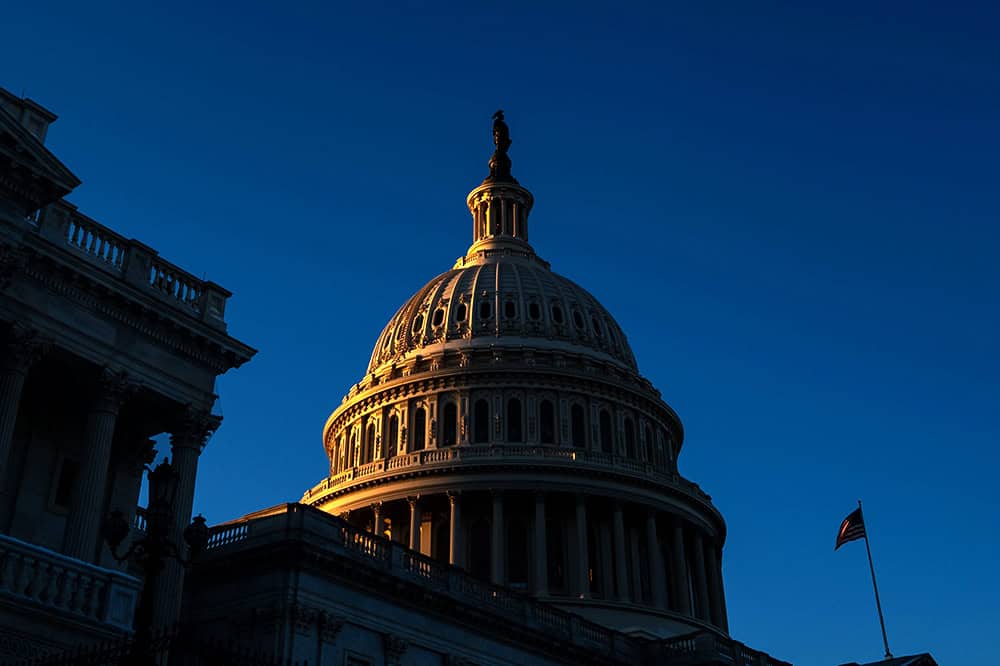Peterson Foundation Statement on National Debt Surpassing $34 Trillion

NEW YORK — Michael A. Peterson, CEO of the Peter G. Peterson Foundation, commented today as the United States surpasses $34 trillion in debt. Peterson said:
“We are beginning a new year, but our national debt remains on the same damaging and unsustainable path. Following last year’s debt ceiling deal, we quickly crossed $32 trillion in June, $33 trillion in September, and now we are soaring past $34 trillion. Looking ahead, debt will continue to skyrocket as the Treasury expects to borrow nearly $1 trillion more by the end of March. Adding trillion after trillion in debt, year after year, should be a flashing red warning sign to any policymaker who cares about the future of our country.
“The debt rises unabated because of well-known, structural drivers, including an aging population, high healthcare costs, rising interest costs, and a tax system that doesn’t fund what we’ve promised. On our current path, important programs like Medicare and Social Security will both face the depletion of their trust funds within a decade. Despite these clear and present fiscal dangers, our leaders are still debating this year’s appropriations, with a potential government shutdown looming.
“To help break through partisan gridlock, lawmakers on both sides of the aisle and in both the House and the Senate have supported a bipartisan fiscal commission. This is promising, because a dedicated, comprehensive process would put everything on the table, allowing lawmakers to look across the entire budget to recommend revenue and spending reforms that stabilize our debt. Nine-in-ten voters, across party lines, support a bipartisan fiscal commission, because they understand that we can’t borrow our way to a positive economic future. As we enter a critical election year, it’s an important time for a national conversation about our fiscal outlook and economic future, and an opportunity to start to put the nation on a stronger, more sustainable path.”
To see the national debt ticking above $34 trillion, visit www.thenationaldebt.org.
# # #
Further Reading
Lawmakers are Running Out of Time to Fix Social Security
Without reform, Social Security could be depleted as early as 2032, with automatic cuts for beneficiaries.
What Is the National Debt Costing Us?
Programs that millions of Americans depend on and care about may be feeling a squeeze from interest costs on our high and rising national debt.
Interest Costs on the National Debt Are Reaching All-Time Highs
The most recent CBO projections confirm once again that America’s fiscal outlook is on an unsustainable path — increasingly driven by higher interest costs.


